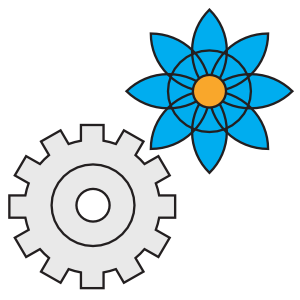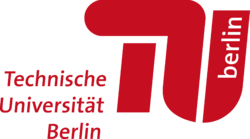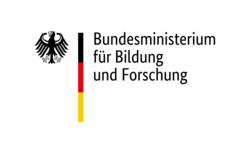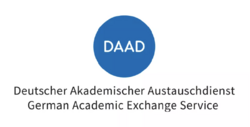English
Courses in English at TU Berlin
Open for Every Student - Blue Science – a transdisciplinary course discussing how your lens can contribute to other modes of science - Block course - April 7 – 11 2025 @ TU Berlin
During the pandemic, we had the opportunity to offer the Blue Engineering course online and in English.
For two semesters, the Blue Engineering course at TU Berlin has returned to its traditional face-to-face format. However, we wanted to continue to develop online courses that provide opportunities for international and interdisciplinary exchange. Starting in the summer semester of 2023, a second course from the Blue Engineering family has been offered at TU Berlin: Blue Science. In summer 2025 we will have Blue Science on Campus as a block course for the first time.
Blue Science is a highly interactive, synchronous course in English developed at the TU Berlin. It is open to participants from all universities and from all faculties.
We will discuss issues of global and ecological justice, first reflecting on our own disciplinary and personal backgrounds and then getting to know the other perspectives in the course. Finally, we will explore and formulate possible transdisciplinary research questions.
What to expect:
One week of highly interactive on campus course, April 7 – 11 2025 at TU Berlin Campus Charlottenburg (main building).Be prepared to speak in English and to contribute, there will be almost no lecture style teaching!
- Reflecting learning, university, modes of science and your *lens* of perceiving and interacting with the world around you. - Reading and small writing assignments between sessions
Two half days for presentations, a workshop with your group and reflection (May 2025, tba)
6 ECTS graded course for TU Berlin students
If you are interested, please send an email to Anton Schaefer (he/his) a.schaefer@tu-berlin.de.
Blue Science - Course Description
The course consist of three main phases. We will
- explore and reflect on our own perspectives on social and environmental responsibility and on global goals for sustainability - taking into account both disciplinary and personal backgrounds.
- analyze commonalities and differences in perspectives and research methodologies represented in the course
- combine multiple perspectives into a transdisciplinary research approach and create a research proposal for a potential transdisciplinary research project.
After successfully passing the module, students will have:
Knowledge
- different perspectives on
- social and ecological crises
- internationally agreed sustainability goals and their metrics
- the interrelationships of technology, nature, the individual and society
- of approaches to the socio-ecological transformation of society
- the relationship of sustainability to political ecology and democracy
- central concepts and methods of one's own discipline
Skills
- in leading discussions in large groups
- working together in small, interdisciplinary and international groups
- in the joint development of transdisciplinary research projects
Competencies
- to reflect on personal perspectives on social and ecological responsibility
- reflecting with others on the heterogeneity of perceptions and knowledge related to social and environmental crises
- to identify possible contributions of the individual sciences to the elaboration and achievement of global sustainability goals
- to analyze and evaluate the interactions between technology, nature, the individual and society through single-scientific, inter- and transdisciplinary approaches with regard to their historical causes and present and future consequences
- to cooperate with others for democratic decision making in terms of process, outcome and implementation
- to cope with the decision-making dilemma arising from individual, disciplinary and societal responsibility
Blue Engineering in short
The interdisciplinary Blue Engineering Course offers prospective engineers a look beyond their horizons and an (inter-)active approach to their social and ecological responsibility. This gives them the opportunity to become aware of their own values and reflect them with others. In addition, the teaching/learning process is essentially shifted to the students, so that they assume responsibility co-conducting own course and at the same time co-develop the whole course for the future semesters. All in all, the students complement their specialist knowledge from their regular study programs with orientation skills and competences that help them to know their role in terms of technology and society and to shape it together with others.
Building Blocks - Online Starter Kit
To raise awareness of and to facilitate discussion on the different aspects of social and ecological responsibility, the Blue Engineering-Group developed the idea of teaching units. These units - named building-blocks - are typically designed for one lesson of 60 or 90 minutes and address a complex issue, e.g. whistle-blowing, ethical codes, technology as problem-solver, social businesses and cooperatives. Through the use of a wide variety of teaching methods the learning outcome depends more on the students as individuals and as a group than on the teachers. Consequently, the people responsible for the course don't function as experts who lecture but rather as moderators of group- and learning-processes. In fact, students may even be included in teaching by letting them prepare and conduct a building-block for the rest of the class. In addition, building-blocks may easily be used by a group of engineers working together in a company for their own continued education.
A short description of two building-blocks may help to better grasp the whole idea:
In the first phase of the block "Greenwashing or Decision Aids - Labels, Certificates and the like", the participants get to know the "seven sins" of greenwashing. Based on this, they develop in small groups creative advertisement for a fictional product by excessively using methods of greenwashing. The advertisement is presented to the entire group and rounded up with a brief discussion. In the second phase of the block the small groups work through brochures of widely known labels and certificates and discuss if they are reliable.
The participants of the block "Technology as a Drama - Technology in Drama" read passages of "The Physicists" by Friedrich Dürrenmatt and "Life of Galilee" by Bertolt Brecht. In small groups they rephrase the key messages in their own words and use them to improvise small scenes. The small groups present their best scenes to the whole group and lead a discussion on their interpretation.
There are now more than 140 such modules, which are regularly used in the Blue Engineering Seminar and outside. They will are freely accessible on the homepage since June 2017. Building Blocks - Online Starter Kit - English
Structure of the Blue Engineering Seminar
The Blue Engineering Course at the TU Berlin has a total capacity of 100 participants per semester. The seminar is designed in such a way that the participants sometimes meet and work together in one room and at other times they are split up into several rooms. This is done to allow for intensive group work and discussions as well as to present external speakers to all of the participants. The course takes four hours per week and covers the whole semester of 15 weeks. It consists essentially of three phases:
In the first phase, tutors carry out six core modules, so that the participants get to know the general character of the Blue Engineering Course as well as well as its content and didactic approach. The topics here include technology assessment, ethical codes, technology as a problem solver and the productive world view.
In the second phase, the participants organise in small groups to conduct an existing building block for their fellow students. By doing this, they learn how to actively organise a demanding and meaningful teaching/learning unit that does not follow conventional teaching approaches. The topics here include:"Gender, Diversity & Technology", Stromopoly, Nuclear-Power-Anno Domini, Peak Everything,"Work, Society and Trade Unions", Automation vs. Good Workplaces, Virtual Water and Land Grabbing. These building blocks are taken from the list of over 150 existing building blocks.
In the third phase, the small groups present a building block that they have newly developed over the entire semester. The topic and methods are usually set by the participants themselves. For quality assurance they receive feedback from fellow students and student tutors several times over the course of the whole semester. These building blocks are than added to the growing list of existing building blocks.
Assessment Criteria
The 6 ECTS Credit Module is completed by three exam-equivalent study achievements
- the weekly learning journal serves for student’s own reflection and where the different topics over the course are connected and linked to. newspaper articles, conversation with friends or family etc.
- the conduction and documentation of a newly developed building block
Evaluation
Approximately 90% of the participants state that they will recommend the course to others in a final survey. Therefore about 50% of the participants enroll on the basis of a recommendation.
The proportion of female students is approximately 25%. Particularly noteworthy in this context, however, is the fact that the proportion of female students of mechanical engineering, information technology in mechanical engineering and physical engineering is 50% higher than the respective cohort. This suggests that the emphasis on ecological and social relevance can increase the attractiveness of engineering sciences.
The teaching units developed by students are generally of a very high quality. They can be used outside of class without any hesitation. Many building blocks even testify to an intensive study of topics that are often (still) barely noticed by the general public. At the same time, there are seemingly no limits to the creative implementation through games, role plays, videos and the like.
The learning objectives are also examined by a quantitative evaluation at the end of the semester. For this purpose, the students are asked to assess their competences at the beginning and end of each semester. In almost all 12 key competences for sustainable development, the participants note an increase of about 1 point on a 6-point-scale.
History and Implementation at other Universities
In the seminar “Soziologie im Ingenieursberuf“ at the Technical University of Berlin a few students noted in 2009: "We need more social and ecological responsibility in engineering education and profession. This is our idea..."
Therefore they developed a seminar concept in a project workshop within two years. The first Seminar took place in 2011/2012 with 25 participants. From then on the course was offered every semester. In the past digital semester of 2020 there were 120 participants guided by three tutors.
In the meantime Blue Engineering has been established at further universities (HAW Hamburg, HTW Berlin, TU Hamburg, HS Düsseldorf, TU Dresden, HS Ruhr West, Uni Stuttgart, TH Köln). This Semester an international Blue Engineering course is launched in English.
Further Reading
- Baier A. (2013). “Student-Driven Courses on the Social and Ecological Responsibilities of Engineers”. Science and Engineering Ethics, 19, 4, 1469-1472.
- Baier A. and Pongratz S. (2013). “Collectively and Critically Reflecting on Technology and Society”. Proceedings of the 41st SEFI Annual Conference, 16-20 September 2013, Leuven, Belgium.
- Pongratz S. and Baier A. (2015). "Encouraging Engineering Students to Question Technological Solutions for Complex Ecological and Social Problems." Integrating Sustainability Thinking in Science and Engineering Curricula. Springer International Publishing, 2015. 375-386.



